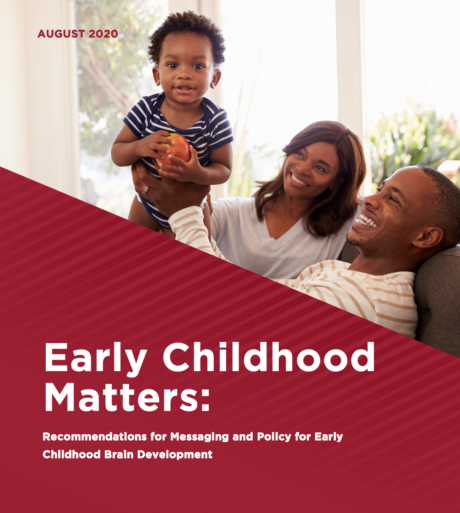
By Jennifer Mineo, DrPH, LMSW
Senior Research and Evaluation Officer
The science focused on early childhood brain development is clear — the prenatal period through the first three years of a child’s life offers a unique opportunity to build a strong foundation for lifelong social, emotional, mental, and physical health. Positive, protective relationships and environments during this critical developmental period strengthen a child’s ability to thrive and mitigate the effects of life’s stresses and challenges. Brains can change- but the best opportunity to make effectual change is while children are in these early years.
While there are many influences on a child’s life during this vital development, some of the most powerful impacts come from state and local public policies. These policies inform and finance the health, education, economic, and family support systems that are integral to a child’s development. As important players in these systems that impact children, government policymakers can help optimize the health, social, and economic potential of the youngest Texans. At both the state and local levels, these officials have multiple policy, programmatic, and fiscal mechanisms to support positive brain development and promote a healthy society.[i]
It’s important that local and state policymakers are aware of and understand the core concepts of early childhood brain development as they assume their roles in shaping the future of Texas. While other researchers and organizations have engaged elected officials in national studies of knowledge and attitudes on this topic, there was no data specific to Texas, which is home to 10% of the country’s infants and toddlers. This led EHF to contract with two children’s research and advocacy organizations — TexProtects and Child Trends — to conduct an assessment study of local and state policymakers that could help shape educational outreach and messaging to this key constituency.
The study included representatives from the Texas House and Senate as well as local county commissioners and city council members representing the communities in EHF’s 57-county service region. The study found that most policymakers who participated understand that experiences early in life can have long-term impacts, and that both access to health care and the quality of the parent/caregiver relationship are important for healthy development of children. These policymakers agree that health care for expecting mothers and children, along with early education programs offer the highest return on investment. Additionally, most would like more information on early childhood brain development and, specifically, on the approaches that are most effective and produce the greatest return on investment.
These new insights and key findings outlined above are available the messaging guide and report developed as a resource for stakeholders and advocates for early childhood brain development in Texas. It includes strategic messaging tactics designed to facilitate intentional and effective communication, plus specific suggestions on how word choice can help advocates communicate simply and meaningfully to drive policy action. The guide also identifies the values to which advocates should connect their messaging.
The need for policies that support positive early childhood brain development is critical to the future health of Texas. This is especially true now as families of young children across the state face added hardships brought on by COVID-19. Policymakers are key to bringing best practices and policies for children to local communities in Texas. This new messaging guide based on findings from EHF’s recent study is a tool for stakeholders to use in communicating with policymakers. It’s based on policymakers’ awareness and interests in early childhood brain development and can be used to drive action and implement policies that will lay the foundation for life-long health, social, and economic success for Texas.
[i] Alliance for Strong Families & The Palix Foundation (2016). Using a Brain Science-Infused Lens for Policy Development. Achieving healthier outcomes for children and families. http://www.alliance1.org/change-in-mind
